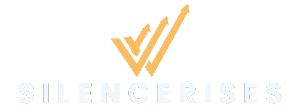Setting career development goals is like having a GPS for your professional journey. Without it, one might end up lost in the maze of job titles and endless meetings. Whether aiming for that corner office or simply wanting to improve skills, having clear goals can turn aspirations into achievements.
Table of Contents
ToggleUnderstanding Career Development Goals
Career development goals provide clarity in a professional landscape filled with distractions. Individuals can chart their course by setting specific, measurable objectives that align with their aspirations. Each goal represents an actionable step toward personal or professional advancement.
Career goals can include acquiring new skills, attaining higher positions, or engaging in professional development activities. For instance, someone aiming for a managerial role may focus on leadership training or mentorship opportunities. They’re vital for remaining competitive and ensuring growth.
Specific examples of career development goals include obtaining certifications relevant to one’s field or improving networking capabilities. Engaging in continued education courses or attending industry conferences fosters knowledge and connections. These experiences contribute significantly to overall career advancement.
Goals should also encompass soft skills, such as communication and teamwork. Developing emotional intelligence can enhance relationships and lead to better collaboration, benefiting both individual and organizational success. Creating a balance between hard and soft skill development results in well-rounded professionals.
Individuals often reassess their career goals to remain aligned with personal values and market demands. Periodic evaluations of progress ensure individuals stay focused and adjust their objectives as needed. Setting a timeline for achieving these goals supports accountability and motivation.
By understanding and implementing career development goals, professionals create a roadmap that drives their career journeys effectively. This strategic focus leads to enhanced satisfaction and achievement in their chosen fields.
Importance Of Setting Career Development Goals
Setting career development goals acts as a roadmap for professionals. These goals outline a clear path to achieving desired outcomes in the workplace.
Benefits Of Clear Career Goals
Clear career goals provide direction and focus. Professionals experience increased motivation when working toward specific objectives. They often find that measurable goals enhance accountability and encourage proactive behaviors. With clear milestones, individuals can track progress and celebrate achievements along the way. Progression becomes more tangible when goals are aligned with measurable outcomes. As a result, clarity in career aspirations significantly improves job satisfaction and career advancement opportunities.
Aligning Goals With Personal Values
Aligning career goals with personal values fosters a sense of fulfillment. When individuals pursue objectives that resonate with their beliefs, they feel more committed to their work. It’s crucial to assess personal values before setting career goals, as this alignment often leads to enhanced job performance. By focusing on goals that reflect their values, professionals create a more meaningful career journey. Moreover, values-based goals help navigate difficult decisions during career challenges. Personal satisfaction tends to increase when individuals feel their professional life mirrors their core principles.
Examples Of Career Development Goals
Career development goals can take various forms, depending on timeframes and aspirations. They provide direction, helping individuals thrive in their careers.
Short-Term Career Development Goals
Short-term career development goals focus on accomplishments within the next few months or years. Examples include completing a certification related to the current job, attending industry conferences to network, or improving a specific skill like public speaking. Gaining feedback from a supervisor can also enhance skill sets, while volunteering for new projects showcases initiative and builds experience. Tracking progress through these goals fosters immediate engagement and motivation.
Long-Term Career Development Goals
Long-term career development goals aim for positions or achievements several years ahead. Pursuing advanced degrees or leadership roles often serves as primary examples. Establishing a five-year plan can clarify steps toward promotions and expanded responsibilities. Networking with mentors contributes valuable insights and guidance for future paths. Achieving mastery in a specific industry or area also represents a vital goal, making professionals more competitive in the job market. Each goal supports sustained personal and professional growth.
Strategies For Achieving Career Development Goals
Effective strategies play a vital role in achieving career development goals. Implementing specific tactics helps professionals stay on track and measure progress.
Creating An Action Plan
An action plan outlines specific steps to reach career objectives. Start by breaking down goals into manageable tasks or milestones. Each task can include deadlines to ensure timely completion. Assess necessary resources such as training, education, or tools. Additionally, tracking progress regularly helps identify areas needing improvement. Adjust the plan as situations change to stay aligned with career aspirations.
Seeking Mentorship And Guidance
Mentorship provides invaluable insights and support throughout career journeys. Identify potential mentors within one’s network or industry. Engaging with mentors allows professionals to learn from their experiences. Regular check-ins and open conversations about challenges foster growth. Consider seeking diverse viewpoints by connecting with multiple mentors. Cultivating these relationships enriches professional knowledge and can open doors to new opportunities.
Conclusion
Setting career development goals is essential for navigating the complexities of the professional landscape. By establishing clear objectives individuals can maintain focus and motivation throughout their journey. Whether aiming for short-term achievements or long-term aspirations these goals serve as a guiding framework.
Regularly reassessing these goals ensures they remain aligned with personal values and market trends. This ongoing reflection fosters a sense of fulfillment and commitment to one’s career. Ultimately a well-defined roadmap not only enhances job satisfaction but also opens doors to new opportunities for growth and advancement. Embracing this approach can lead to a more meaningful and successful career trajectory.



